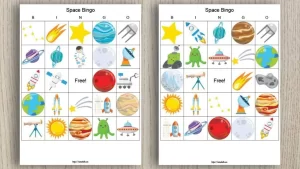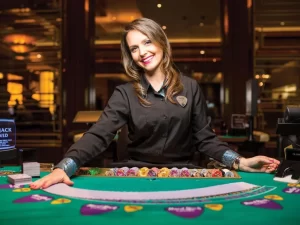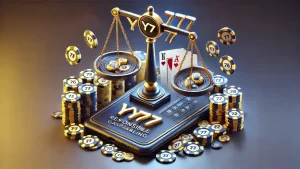
Understanding online bingo lingo can be key to playing like a pro, yet adapting can seem intimidating at first.
Bingo phrases are steeped in history and culture. Learning these idioms is easy; just add them into your conversations regularly!
Number Nicknames
Bingo number nicknames often come from rhymed slang and historical references, particularly British numbers which might draw upon Cockney slang or other regional traditions for inspiration.
One of the more famous examples is Two Fat Ladies, which refers to how closely 88 and two ladies resemble one another. Another popular one is Duck and Diving which references how 28 has both its shape (resembling that of a duck) as well as resemblances to snakes.
Internet has made nicknames more widely spread. Bingo players who access bingo websites worldwide can connect and exchange bingo slang, helping their nicknames gain greater popularity while inspiring people to create unique nicknames that keep bingo alive.
Regional Variations
Local and regional bingo calls add a personal touch to the game, particularly when played among friends or people from the same area. These bingo calls can draw inspiration from rhymes to number shapes to major events and popular figures – for instance in Australia “Dancing Queen” refers to 16 and is inspired by its similarity to the sinuous dance moves seen in ABBA songs; similarly “Knock at the Door” from UK bingo players refers to 4 due its similarity to doorbell chimes.
Learning bingo lingo terms will help players immerse themselves in the game and feel like part of an community. They serve as communication tools in crowded halls or online chat rooms and enable easy interaction among players-adding rich tradition to this ancient pastime! No matter if you play at a local hall or online, mastering bingo phrases will enhance your experience and make playing bingo even more thrilling and pleasurable for all involved!
Rhyming Slang
Rhyming slang can add a fun dimension to bingo games while making players feel part of a community. Many use references to local landmarks or shared jokes in order to add a sense of community into their bingo games; for example, some refer to number 8 as “Booby Moore,” an allusion to one of Bee Gees’ famous disco songs; 42 is often known as Torquay Train.
Other slang is connected with historical events or culture; for example, some players refer to number 1 as Kelly’s Eye in reference to Australian outlaw Ned Kelly who only had one eye. Meanwhile, 10 is sometimes called Prime Minister’s Den or Dirty Gertie from Bizerte based on an old song from Music Hall days; other numbers have nicknames that relate to how they look such as Legs Eleven (number 11), Two Little Ducks (22) or Doctor’s Orders (9). Other terms refer back to famous characters from literature or film such as Winnie the Pooh (30).
Practice Makes Perfect
Learning Bingo lingo goes far beyond memorizing a list of fun phrases or reading a call dictionary; it involves immersing yourself in the game and feeling part of an exciting community. From number nicknames to regional variations, each phrase tells its own tale and contributes to Bingo’s rich culture.
Many of the most iconic Bingo calls include both humorous and historical references. For instance, “Two Little Ducks 22” refers to how this number looks like two ducks while “Legs Eleven 11” references its shape as 11.
Nicknames serve an entertaining function, making each drawn number memorable and creating an interactive gaming experience both offline and online. Learning these fun phrases can also help improve pronunciation so you sound like an experienced pro when playing bingo!








